
Everyone deserves to chart their own end-of-life journey.
We can’t prevent death, but we can shape how we’d like our final days to unfold.
By exploring end-of-life care options, discussing our wishes with healthcare providers and loved ones, and documenting our plans in the form of an advance directive, we can help ensure that we receive the care we want at the end of our lives.
That’s why the Latinx Task Force is partnering with Compassion & Choices, a national organization dedicated to improving care, expanding options, and empowering everyone to chart their end-of-life journey.
Compassion & Choices prioritizes reaching Latino and Hispanic communities across the U.S. with end-of-life resources and support.
Through in-person and virtual events, creating free bilingual resources, collaborating with partners like the Latinx Task Force, and more, Compassion & Choices is addressing healthcare inequities and equipping people to take charge of their end-of-life care. Compassion & Choices also has a national Latino Leadership Council through which faith leaders, physicians, and advocates like Dolores Huerta further advance this vital work.
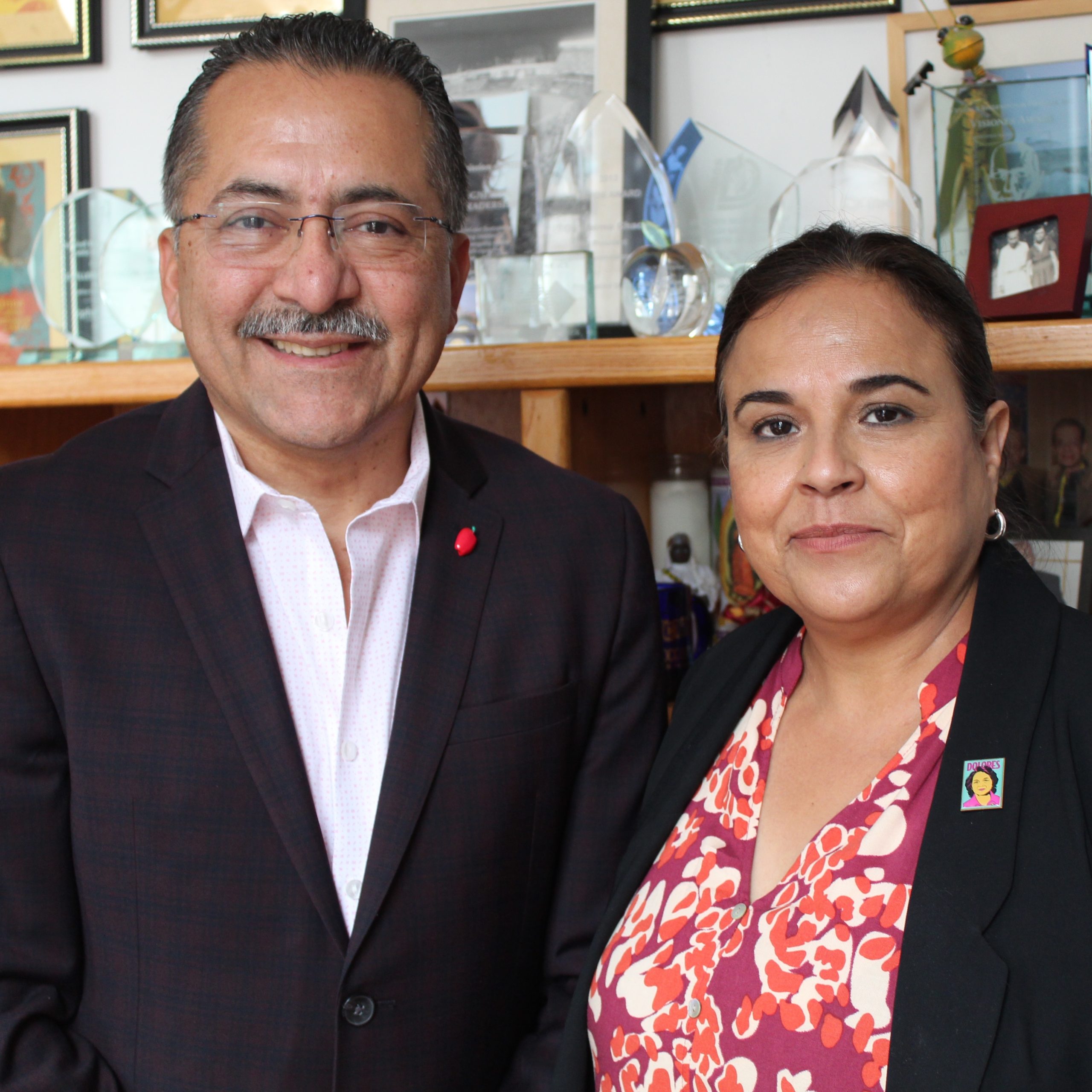
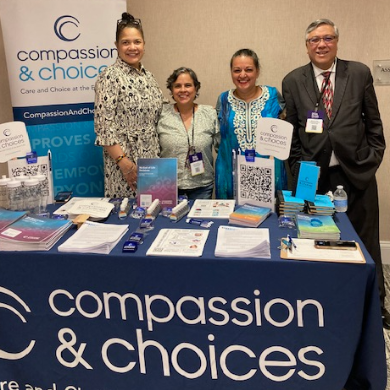
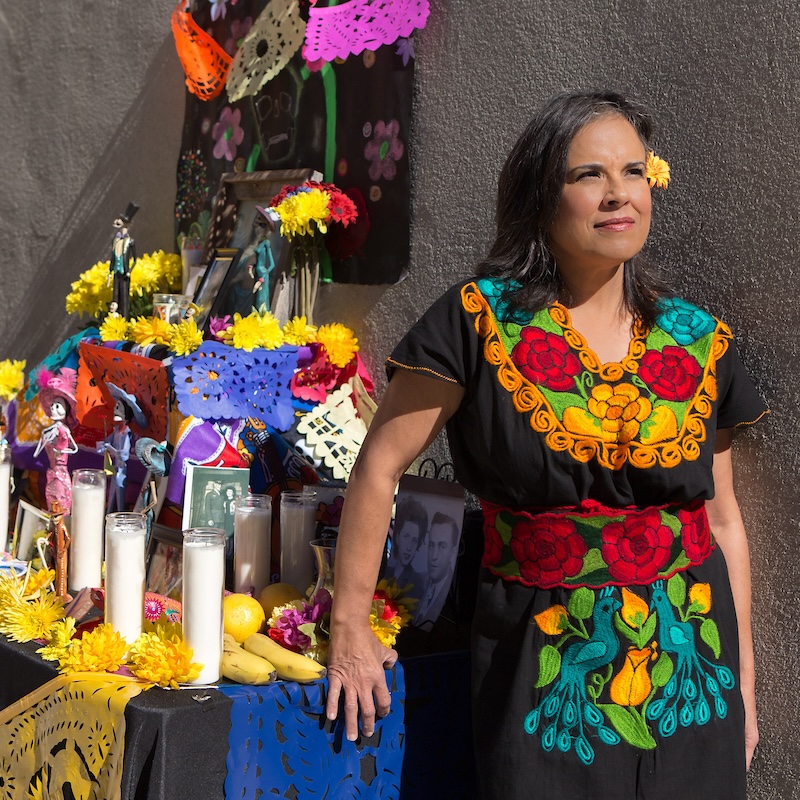
Why is end-of-life care important for the Latinx community?
We all deserve to die in a way that is consistent with our wishes, values, and priorities. Yet racially and ethnically diverse communities face systemic and persistent inequities in end-of-life healthcare.
Like other historically underserved groups, the Latinx community is less likely to receive palliative care, hospice care, and end-of-life planning support, and more likely to receive aggressive medical care in our final days.
These inequities stem in part from a lack of multilingual and culturally competent communication between healthcare providers and their patients. Understandably, many people also distrust the healthcare system due to past experiences with bias and discrimination. These realities can lead to a lack of awareness and access to end-of-life care options for our communities.
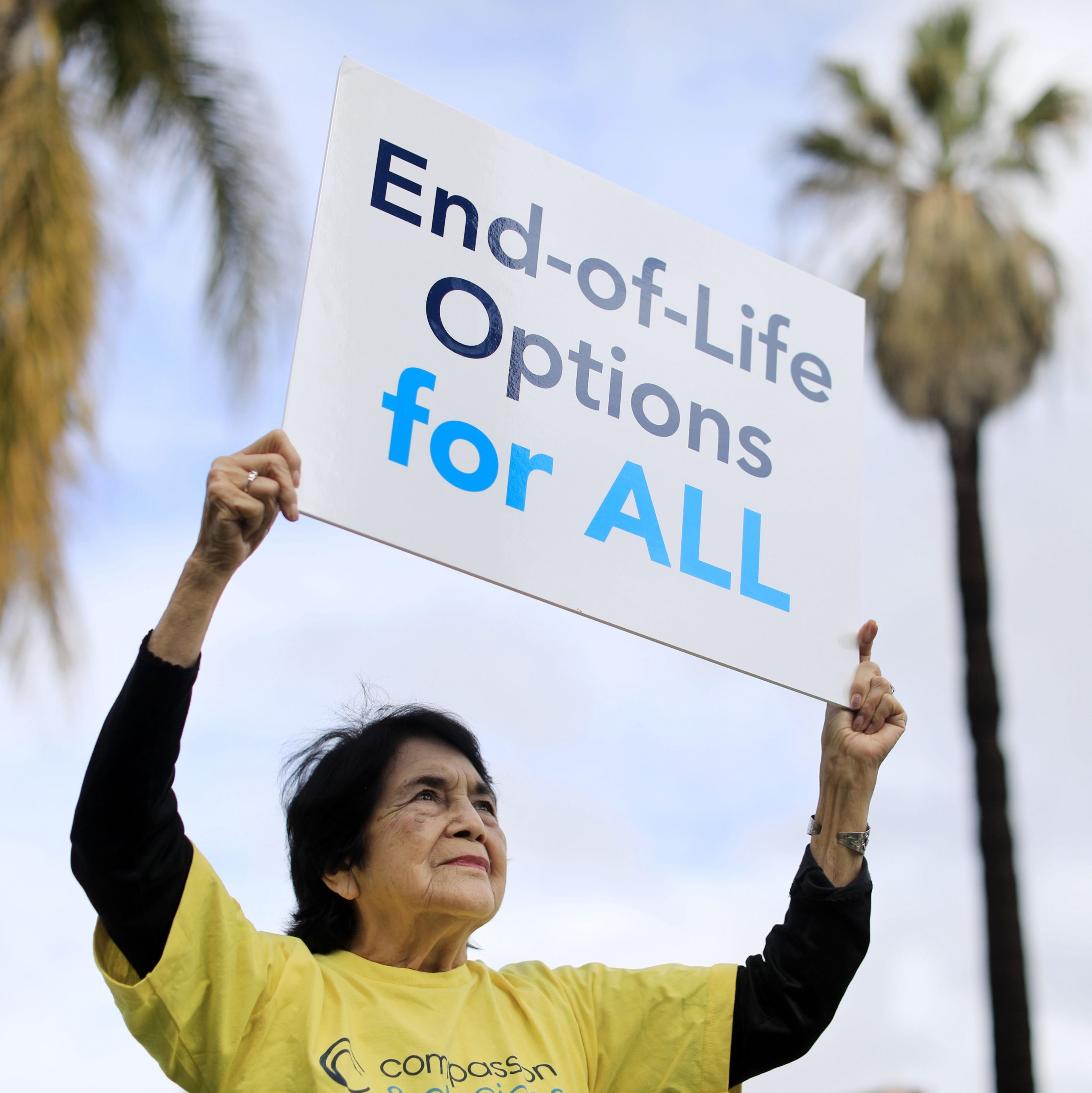
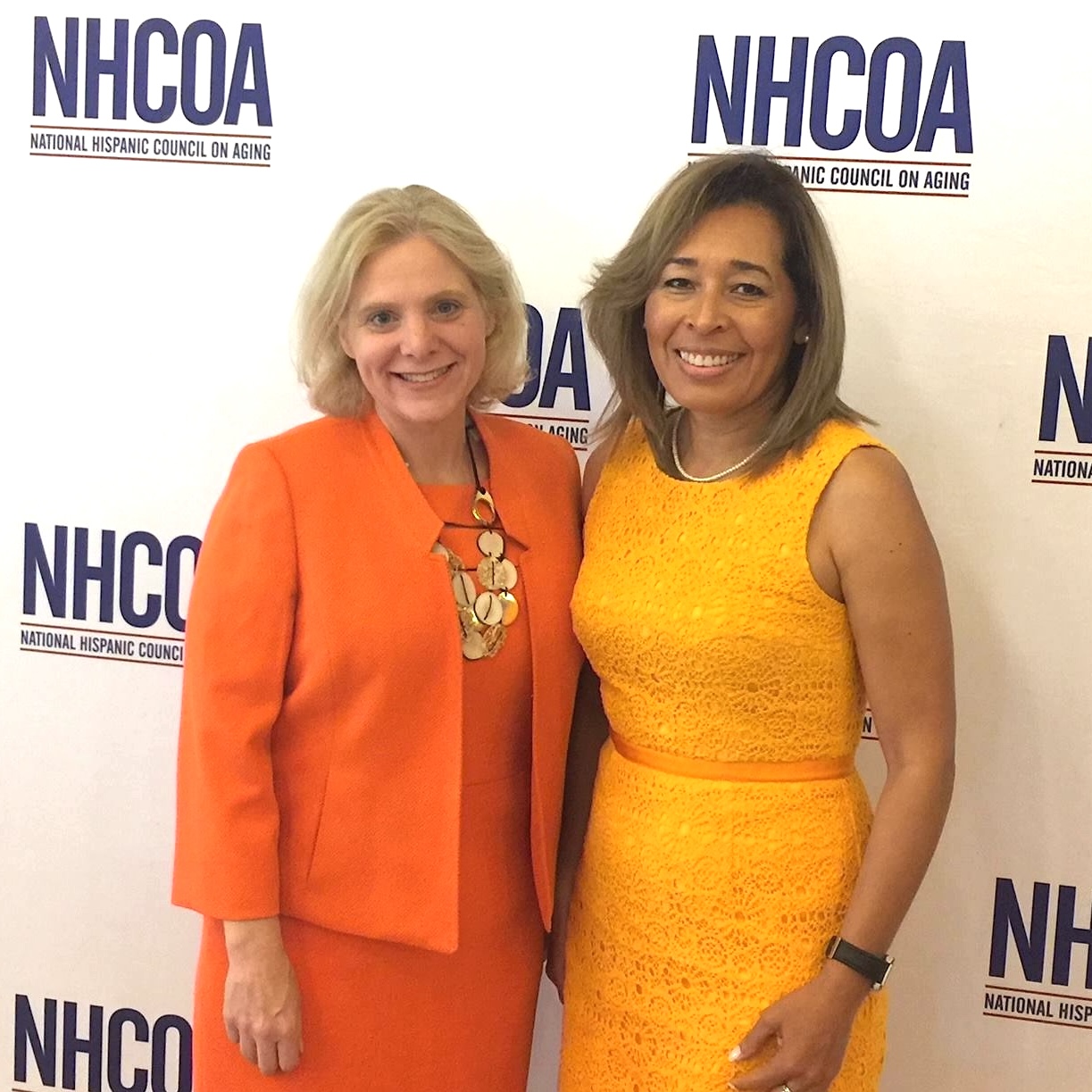
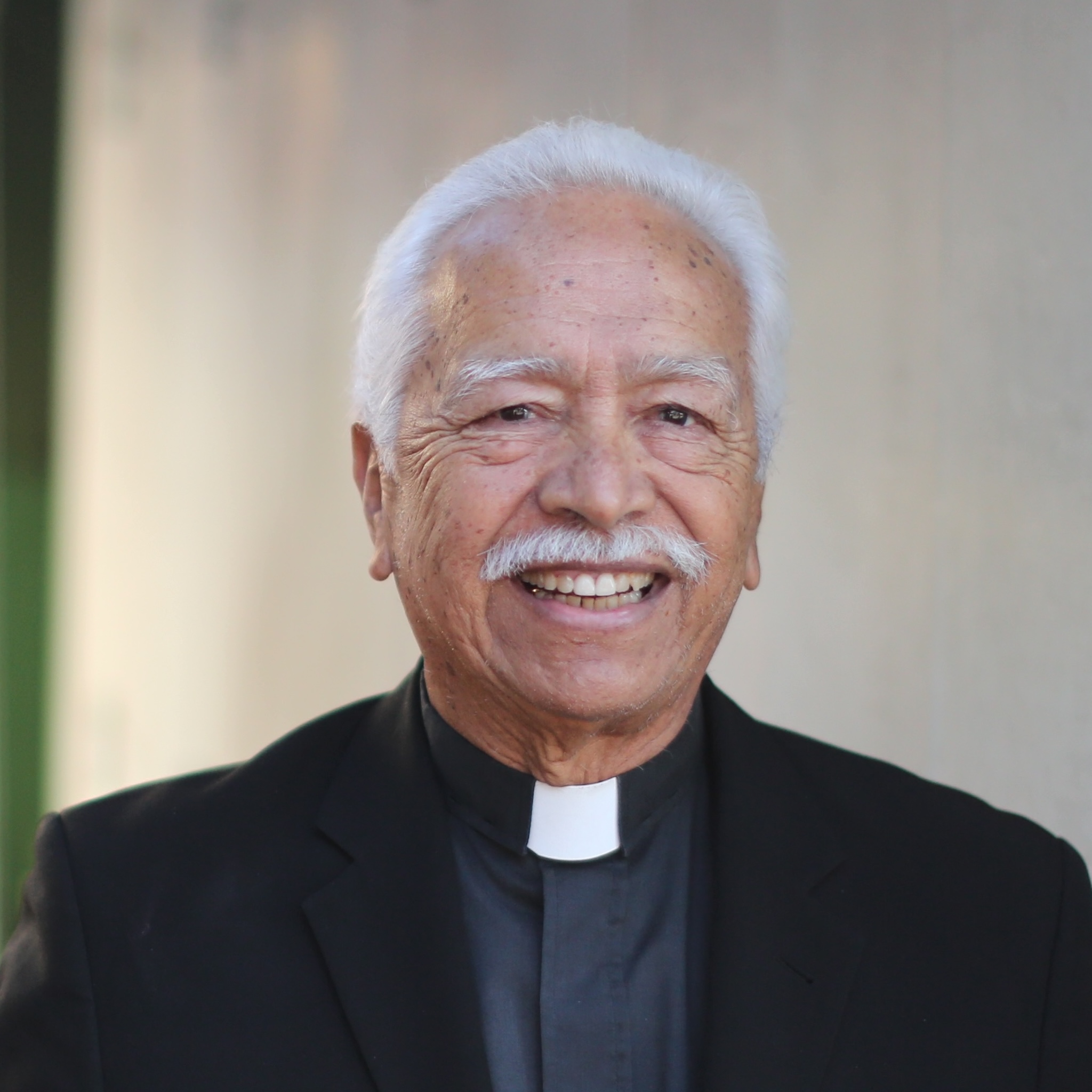
How can we address end of life inequities?
Everyone can learn more about their end-of-life care options, plan ahead, and discuss their wishes with healthcare providers and loved ones. Get started using these free resources in English and Español.
Healthcare providers can commit to having clear and honest conversations with patients about serious illnesses, informing them about the full breadth of end-of-life care options and the importance of advance care planning, and starting end-of-life care conversations earlier — before a time of crisis.
Healthcare systems can focus on language access and increasing staff education and training on end-of-life care and planning, cultural competency, recognizing and interrupting implicit bias, and practicing patient-centeredness.
Education systems can increase efforts to recruit, retain, and support diverse candidates in medical and nursing schools and other practitioner programs.
Additional Resources
English
Advance Care Planning
My End-of-Life Decisions:
An Advance Planning Guide & Toolkit
Dementia End-of-Life Care
Healthcare equity at the end-of-life
More resources can be found here.
English
Español
Dr. Carlos Hernandez Torres
miembro del Consejo de Liderazgo Latino (Latino Leadership Council) de Compassion y Choices, platica sobre la importancia de hablar sobre opciones de fin de vida con sus proveedores de salud.
Planificación Anticipada para el Cuidado de Fin de Vida
Mis Decisiones al Final de la Vida:
Guía de Planificación Avanzada
Opciones de Cuidados para Fin de Vida
Herramienta de Valores y Prioridades Para la Demencia
Mas recursos aquí
English
